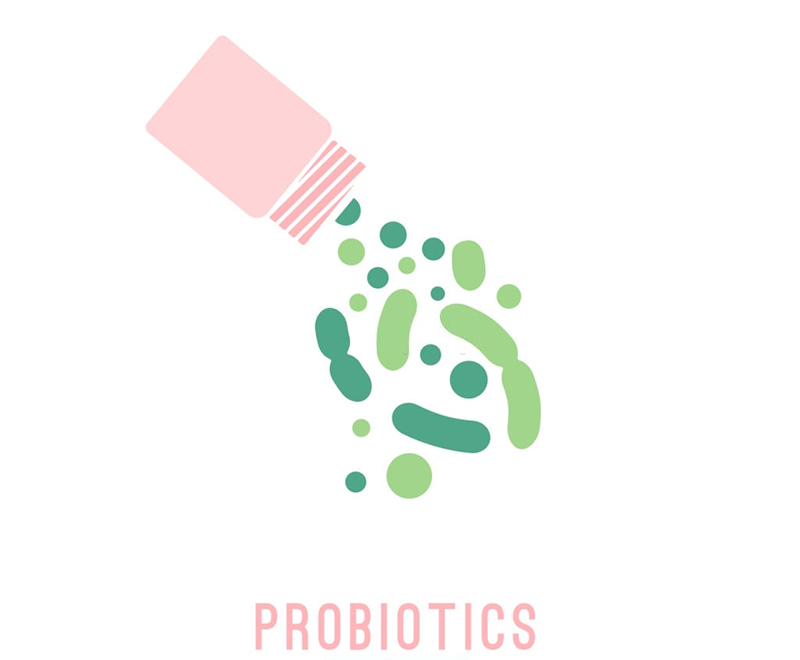The quick answer to whether GPs should counsel patients to use probiotic supplements is that when deciding between supplements and food, practitioners must examine each person.
If a probiotic has no published efficacy studies but appears to be beneficial, the decision to continue using it is a personal one. What we do know is that probiotics have a lot of potential health benefits, whether they come from food, drink, or supplements. probioticseverything.comwhat is a probiotic
Probiotics are live bacteria that can be found in the gut and in some meals and supplements. They provide a health benefit to the person when eaten in sufficient doses. To assist you in providing an informed response to patients, here is some additional information on probiotics.
What are probiotics and what do they do?
Probiotics seldom colonize the gut and instead interact with the microorganisms that already live there. They interact with gut cells, immune cells, and dietary ingredients as they move through the gut, exerting their advantages. probioticseverything.comwhat is a probiotic
Probiotics have been demonstrated in studies to enhance digestive health and immunological function, including lowering antibiotic-associated diarrhoea, boosting infection resistance, and enhancing lactose digestion. Other advantages include a lower incidence of baby eczema and colic, as well as necrotizing enterocolitis. probioticseverything.comwhat is a probiotic
There is also some preliminary evidence of weight management, glycemic control, depression, and anxiety benefits. probioticseverything.comwhat is a probiotic
Is it safe to use probiotics?
At authorized levels, probiotic foods and supplements have been found to be safe for use in the general healthy population. probioticseverything.comwhat is a probiotic
How do you pick a good probiotic supplement?
Not all probiotics are created equal, and not all patients benefit from them in the same way. The majority are from the Lactobacillus, Bifidobacterium, or yeast genera.
It’s better to look for a product that has the strain(s) that have the most proof for the benefit you’re looking for. probioticseverything.comwhat is a probiotic
Is it better to get probiotics via food or a supplement?
In terms of probiotic supplementation, it is still early days, and while there is some emerging evidence, further research is needed. probioticseverything.comwhat is a probiotic
For each patient, the benefits and drawbacks of probiotic supplementation should be examined.
Pros:
- Some strains have clinical implications in conditions including inflammatory bowel disease (IBD) and post-antibiotic treatment immunity (e.g. VSL#3).
- They are well tolerated and provide bacterial diversity, with the majority of them delivering high levels of colony forming units (CFUs) – the number of viable bacteria per sample serve.
Cons:
- Before we observe an increase in efficacy, technological advancements are required.
- Gas, bloating, constipation, and diarrhoea are common side effects at high doses.
- The benefits of fermented foods may extend beyond the bacteria strains (eg the bioavailability of some vitamins and minerals is elevated by the fermentation process of vegetables).
What is the minimal effective dose?
It is not always true that a product with a higher dose or more strains is superior. The optimal dose is one that has been shown to be beneficial in humans and varies from 100 million to one trillion CFUs per day. probioticseverything.comwhat is a probiotic
Is it true that fermented foods are high in probiotics?
Despite the fact that fermented foods include live cultures, they cannot be labeled as a “probiotic” unless the strains contained have been investigated and shown to have health benefits. probioticseverything.com
Fermented foods with a high concentration of ‘good’ microorganisms include:
1 X10(9) CFU yoghurt with active cultures – seek for one billion probiotics per serve
Kefir (fermented milk or water-based drink) — typically contains 30 healthy bacteria strains.
kimchi that is still fresh (Korean fermented vegetables)
sauerkraut (fresh) (fermented cabbage).
Eating a variety of these foods can assist to promote the growth of beneficial microorganisms. To verify that the probiotic strains have not been killed during the production process, look for phrases like ‘live,’ ‘active,’ ‘raw,’ or ‘unpasteurised’ on the container.
Some pasteurized food makers will reintroduce probiotic microorganisms into the final product. These will be mentioned as ingredients in the recipe. According to studies, the benefits of probiotic meals are only seen while they are taken.

